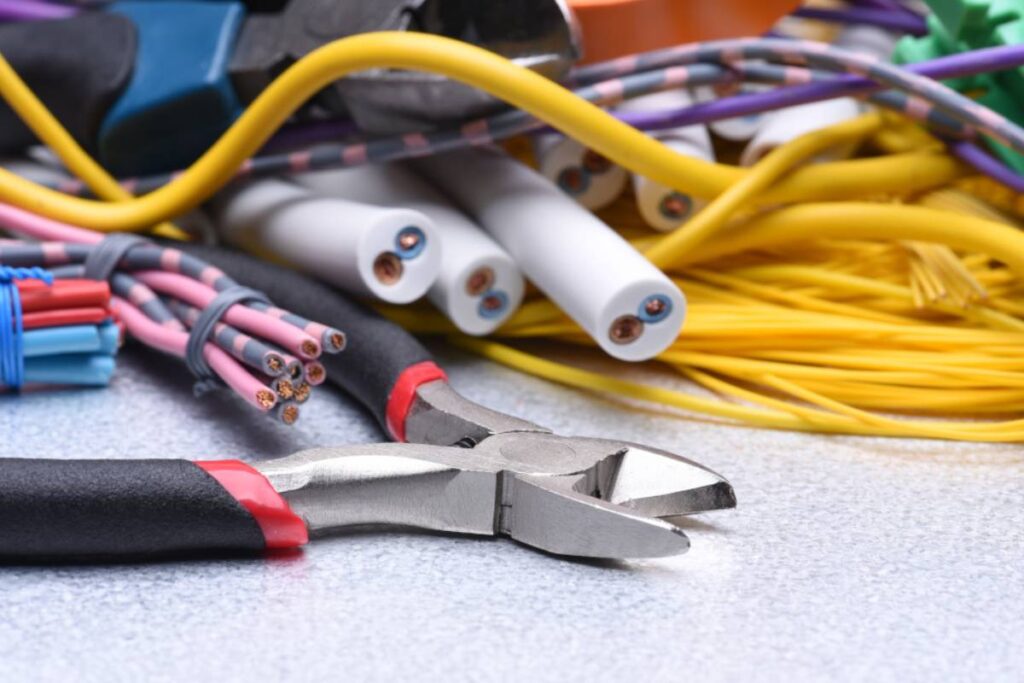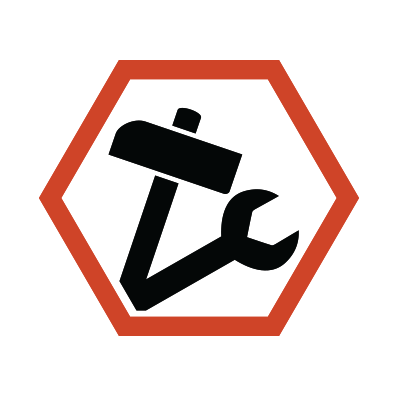As a homeowner, it’s vital to have the right tools at your disposal to handle basic electrical tasks around your house. While it’s crucial to acknowledge that major electrical work should always be entrusted to licensed professionals, having the necessary tools for minor repairs and maintenance can prove invaluable, saving you both time and money.
Whether you’re replacing a light fixture, installing a ceiling fan, or swapping out an outlet, having the correct tools readily available enhances safety and simplifies the task at hand. In this guide, we’ll explore some of the essential tools that should be included in your toolbox for basic electrical work.
Remember, while this guide provides valuable insights, the safest option for any electrical work is always to consult and hire a licensed electrician. They possess the expertise and experience to ensure that electrical tasks are completed safely and up to code, minimising the risk of accidents or damage to your property.
Voltage Tester
A voltage tester is a crucial tool for checking if a circuit is live before beginning any work. It helps ensure your safety by indicating whether there is an electrical current flowing through a wire or outlet. Before handling any electrical components, it’s imperative to verify that there is no live current present to prevent the risk of electric shock or injury.
Screwdrivers
A set of insulated screwdrivers in various sizes is indispensable for electrical work. Make sure they have insulated handles to protect you from electric shocks. These screwdrivers allow you to securely fasten or loosen screws without the risk of conducting electricity, ensuring your safety while working on electrical fixtures or appliances.
Wire Strippers
Wire strippers are used to remove the insulation from electrical wires without damaging the conductor underneath. They come in various sizes to accommodate different wire gauges, enabling you to prepare wires for connections accurately and safely. By stripping wires properly, you reduce the risk of short circuits or faulty connections.
Needle-nose Pliers
These versatile pliers are handy for bending and shaping wires, as well as for reaching into tight spaces. Look for insulated handles for added safety, as they provide protection against electrical shocks while maneuvering wires or components in confined areas.
Wire Cutters
Wire cutters, also known as side-cutting pliers, are used to cut electrical wires cleanly and precisely. They should also have insulated handles to protect against electrical shocks. Properly cutting wires ensures a secure connection and prevents accidental contact with live currents.

Electrical Tape
Electrical tape is used to insulate electrical connections and provide an additional layer of protection against shocks and short circuits. It’s essential for securing and protecting exposed wires or connections, reducing the risk of electrical hazards.
Multimeter
A multimeter is a versatile tool that can measure voltage, current, and resistance. It’s essential for troubleshooting electrical problems and ensuring that circuits are functioning correctly. By accurately measuring electrical parameters, you can identify issues and address them promptly, maintaining the safety and efficiency of your electrical system.
Flashlight
A reliable flashlight is crucial for illuminating dark areas such as electrical panels and crawl spaces. Choose one with a bright LED bulb and long battery life to ensure sufficient visibility when working in dimly lit environments. Proper lighting enhances safety by allowing you to identify potential hazards and work with precision.
Circuit Tester
A circuit tester, also known as an outlet tester, is used to check the wiring of electrical outlets for faults such as reversed polarity or open grounds. By quickly identifying wiring issues, you can prevent electrical hazards and ensure the proper functioning of outlets and appliances.
Fish Tape
Fish tape is a flexible tool used for pulling wires through walls, conduits, and other tight spaces. It’s indispensable for running new electrical wiring or troubleshooting existing installations. With fish tape, you can navigate obstacles and route wires efficiently, simplifying electrical projects and repairs.
Cable Ties
Cable ties, also known as zip ties, are useful for organising and securing electrical cables and wires, preventing clutter and tripping hazards. By neatly bundling and securing cables, you reduce the risk of accidental damage or interference with other components, ensuring a tidy and safe working environment.
Safety Gear
Last but not least, don’t forget to invest in proper safety gear, including insulated gloves, safety glasses, and a non-conductive mat to stand on when working with electricity. Insulated gloves provide protection against electric shock, while safety glasses shield your eyes from debris or sparks. A non-conductive mat provides an additional layer of insulation, reducing the risk of electrical accidents while working on grounded surfaces.
Remember, while these tools are essential for basic electrical work, the safest option is always to contact a licensed electrician for any significant electrical repairs or installations. They have the expertise and training to handle complex electrical systems safely and ensure compliance with local regulations and codes. Safety should always be the top priority when working with electricity, so never hesitate to seek professional assistance when needed.







Leave a Reply